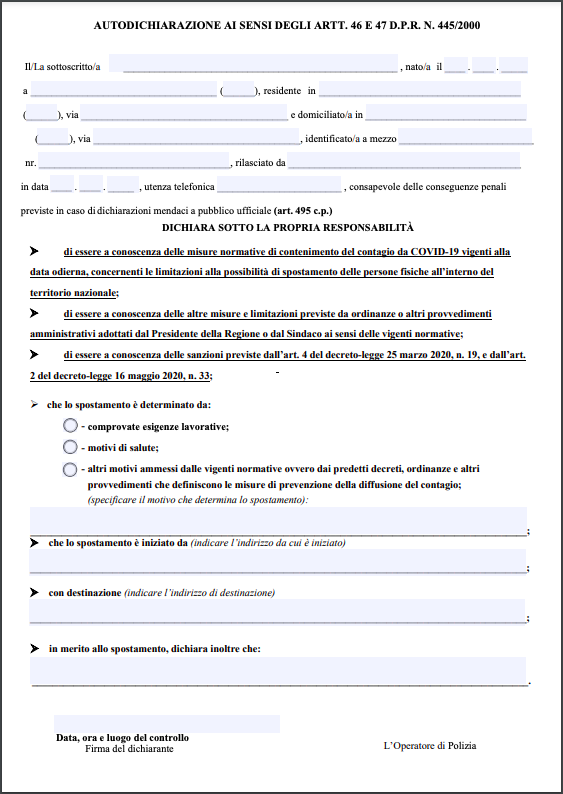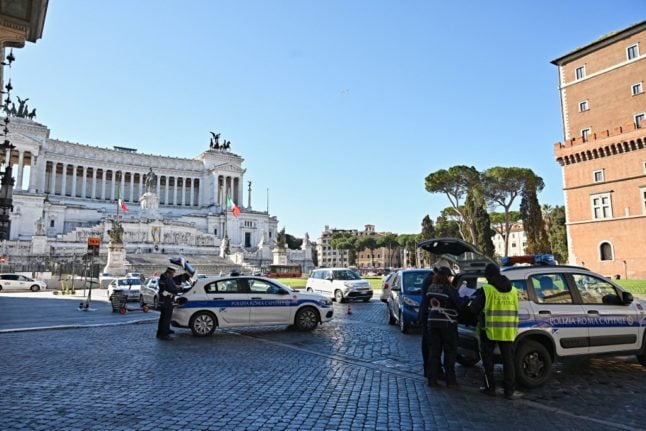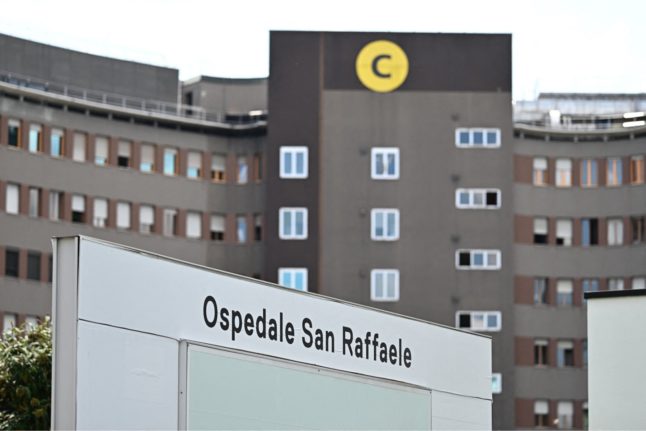Much like the forms used during Italy’s first lockdown in spring 2020, these slips state who you are, where you’re going and why, and that you’re aware of the rules in place as well as the penalties for breaking them.
After most of Italy went back under lockdown from Monday, the ‘self-certification’ forms are once again needed whenever you go out if you’re currently in one of Italy’s red zones.
MAP: How Italy’s coronavirus zones change under lockdown
The good news is that there’s only one autodichiarazione, published by the Interior Ministry and valid in every region of Italy. You can download the current version here.
It’s the same form that everyone has had to fill out if leaving the house during the 10pm-5am curfew since November.
Here’s what it looks like:

When do you need the form?
If you’re in a red zone, you should plan to leave your house only for essential reasons, like going to the supermarket or seeing a doctor.
When leaving the house for any of these reasons in red zones you will need to take a completed self-certification form with you. Even if you’re just going to the pharmacy, or out for a run (solo exercise “near home” is allowed under the current emergency decree).
If you’re in a slightly less-restricted orange zone, you’ll need the form if leaving your municipality, as well as during the evening curfew.
EXPLAINED: What are the lockdown rules in your Italian region?
These rules are in place until at least April 6th.
Easter: With the whole of Italy classed as a ‘red zone’ over Easter, everyone will need the form when leaving the house on April 3-5, according to Italy’s current rules..
At Easter, you’ll be able to go out once per day to visit friends and relatives within the same region even in red zones – more details on that rule here.
Travel: Non-essential travel between regions however is banned across the whole country.
Travelling out of your region for work, health, emergency reasons, or to return home is permitted, but you will need to take the completed form with you.
If you can’t print the form, you are allowed to copy it out by hand.
Police carrying out checks on movements will also have copies of the form ready to give out.
How do you fill it out?
According to the Interior Ministry, you don’t have to print and fill in an autodichiarazione in advance: if police officers stop you, they can supply you with the form and you can complete it on the spot.
Here’s the information it asks for, in order:
- Full name
- Date of birth
- Place of birth
- Town, province and address of permanent residence
- Town, province and address of current residence (if different)
- Type, number, issuing authority and date of issue of official ID
- Phone number
- Reason for travel: work; health reasons; other essential reasons (give details)
- Place of departure
- Destination
- Any additional information
- Date, time and place of police check (leave this blank until you’re stopped)
- Signature
The form should be filled out in Italian.
Make sure you take a picture of the completed form for your records before you hand it over to police.



 Please whitelist us to continue reading.
Please whitelist us to continue reading.
Member comments